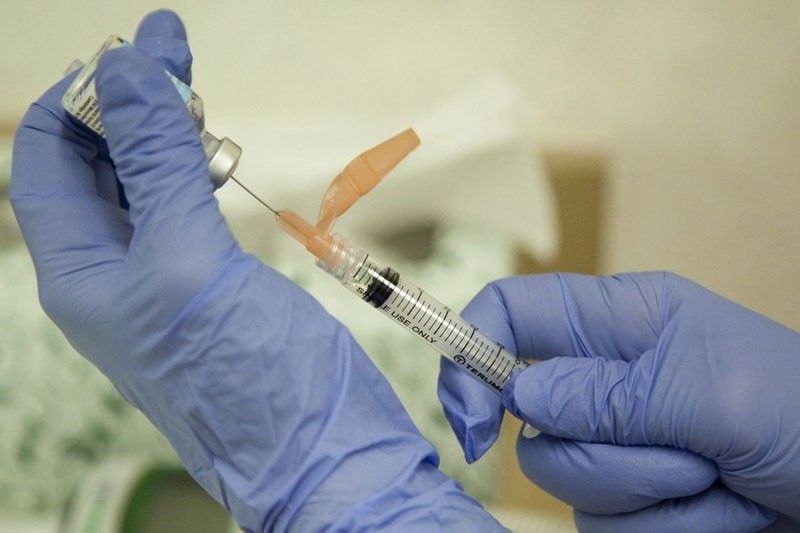JICA holds training on vaccine safety for FDA personnel

MANILA, Philippines — The Japan International Cooperation Agency (JICA) has conducted training for Philippine Food and Drug Administration (FDA) personnel on vaccine quality standards.
The series of training offers FDA personnel the chance to learn Japan’s vaccine quality standards in a bid to improve the safety of vaccines in the country.
“Under the training, the FDA personnel joined participants from Vietnam to observe manufacturing facilities for vaccines and testing systems in Japan,” the JICA said.
The series of training is also in partnership with the World Health Organization (WHO) and Japan’s Ministry of Health, Labor and Welfare, and National Institute of Infectious Diseases.
“We understood the stringent regulations and well-defined functions of Japanese government on vaccines. They also implement quality control guidelines to ensure that vaccines are safe,” Filipino participant Geraldine Dimapilis, food and drug regulation officer from the FDA Field Regulations Operations Office, said.
The training held in Tokyo, according to Dimapilis, showed the importance of collaborating with the academe when it comes to inspecting the quality of vaccines, noting that the Philippines relies on procurement when it comes to vaccines.
“We also learned about Japan’s so-called relief system that provides benefits from health damage such as diseases and disabilities from pharmaceuticals and adverse effects following vaccinations,” Kharlo de Guzman, another participant from the FDA Common Services Laboratory, said.
The JICA said its “Strengthening the National Regulatory Authorities for Vaccine’s Quality and Safety” training is part of its Knowledge Co-Creation Program (KCCP) that aims to share Japan’s experiences and knowhow on specific development areas with partner countries.
The WHO has required every country to establish a national regulatory authority and strengthen their capacity to ensure vaccine safety.
“The said KCCP, therefore, aims to strengthen the role of national regulatory authorities like the FDA as vaccine regulators,” the JICA said.
In the Philippines, the FDA helps ensure food and drug safety as mandated by law as well as other functions, such as licensing establishments, registering health products (cosmetics, supplements, medical devices, toys or childcare articles) and post-market surveillance.
The FDA likewise manages the Common Services Laboratory (CSL) that holds quality testing of food and drugs before entering the local market. About 21 CSL accredited laboratories are operating throughout the Philippines.
As part of the training, participants also visited Japan’s Pharmaceutical and Device Agency, Tokyo Metropolitan Institute of Public Health as well as private sector companies, including laboratories and vaccine firms.
“As outcome of the training, the FDA is currently implementing Good Manufacturing Practice Inspectorate to ensure drug safety and enhance skills of local drugs inspectors,” the JICA said.
Over the years, JICA has supported the Philippines’ public health needs, including the establishment of the Research Institute for Tropical Medicine, FDA laboratories and building hospitals in Aurora, Davao and Benguet, to name a few.
The JICA is the executing agency of the Japanese Official Development Assistance, which handles technical cooperation, ODA loans and investment and grant aid as well as cooperation volunteers and disaster relief programs.
It is the world’s largest bilateral aid agency with its volume of cooperation amounting to about $19.57 billion for JFY 2017 and a worldwide network of about 100 overseas offices, including the Philippines.
PAO turns tables on DOH, Sanofi on measles outbreak
In another development, the Public Attorney’s Office (PAO) yesterday turned the tables on the Department of Health (DOH) and the manufacturer of the controversial Dengvaxia vaccine for the increase of measles in the country reportedly due to vaccine scare.
PAO chief Persida Acosta said the DOH and Sanofi Pasteur are to blame for the supposed vaccine scare and also for the spread of measles – contrary to the claim of Doctors for Truth and Welfare, led by former health secretary Esperanza Cabral, that PAO’s public campaign against Dengvaxia has been diminishing the public’s trust in vaccines that help stop preventable illnesses.
“Who’s in charge of vaccination? Isn’t it the DOH? Why are they blaming us for the spread of measles?” Acosta lamented at a press conference in Manila.
Acosta also stressed that Sanofi, manufacturer of Dengvaxia, was the first to make public the danger of the vaccine.
“Who was the one who held a press conference about the danger of Dengvaxia? Wasn’t it Sanofi?” she recalled.
Acosta said Sanofi publicly declared on Nov. 25, 2017 that “there are already persons who died from their vaccine.”
The PAO chief said putting the blame on her office for the vaccine scare could just be part of diversionary tactic of officials and personalities involved in the Dengvaxia mess.
“They are diverting to other issues. The real issue is their criminal acts for having used the still experimental vaccine,” she alleged.
“They should not blame us because we are just helping the victims,” she stressed in response to critics. – With Edu Punay
- Latest
- Trending





























